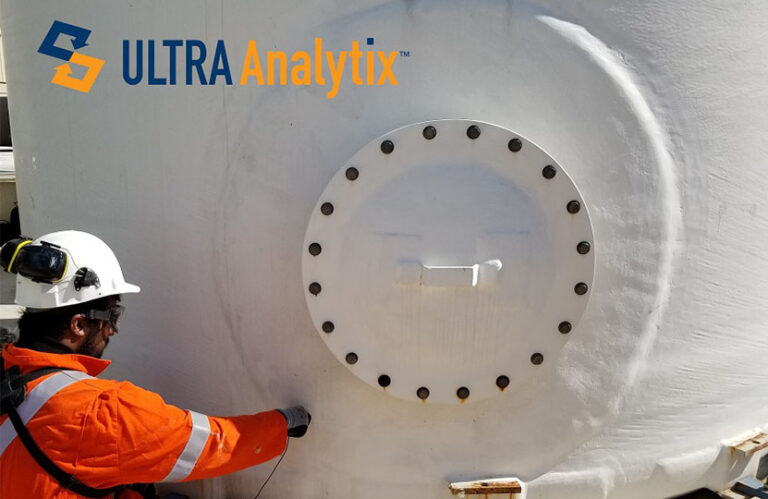UTComp, Inc is an industry leader in engineering and evaluating fiberglass-reinforced polymer (FRP) equipment. Industries around the globe are switching to FRP to take advantage of its high strength to weight ratio and superior corrosion resistance to steels. UTComp® is built on a solid foundation of research, engineering knowledge and experience. The company is involved from the engineering of innovative solutions, material selection, design, oversight of fabrication and supervision of the installation. UTComp’s unique ultrasonic testing is able to provide ongoing inspection and analysis of assets, assessing their condition to provide valuable life cycle information.
UTComp’s team of engineers successfully pushes the boundaries of normal industry guidelines while working with the complex material: Fiber Reinforced Plastic and other composites. The expert advice comes from years of experience. Our mastery of the specialized standards and codes relating to FRP, as well as our experience in finding solutions for safe optimal operations maintains our reputation of excellence. UTComp is constantly building capacity in the FRP industry to ensure we’re on the forefront of the changing landscape. UTComp is committed to ensure that our customers have “Composite Asset Intelligence” to operate their equipment and facilities with maximum safety and longevity.
The patented (US Patent # 9,989,502) UltraAnalytix™ System involves state-of-the-art ultrasonic testing methods and software to determine the condition of equipment made with fiber-reinforced polymers. Plant shutdowns and confined space entry are usually not required to obtain information about:
• FRP strength
• FRP thickness
• Corrosion Barrier Condition
• Abrasion and corrosion damage
• Structural changes occurring within the FRP structure not available by visual inspection
• Damage cause by mechanical loads such as impact, poor supports, earthquake, hurricane, etc.
UltraAnalytix™ calculations have been validated by multiple third-party sources (York University and University of Alabama) with demonstrated correlation to piping conditions found by destructive testing.



